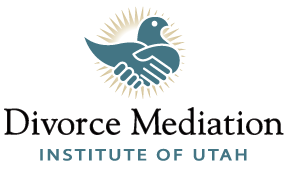Understanding Debts and Credit

Understanding Debt
Although a particular marriage may be coming to a conclusion as a result of divorce, unfortunately, the same cannot be said for any and all debts and/or credit obligations accumulated during that marriage. While there are many uncertainties connected with the entire divorce process, one element can be counted on to remain constant, the monthly bills. Therefore, from the moment the decision to separate is made, it is very important to understand the effects this will have on your debts and credit rating.
A person’s credit history is very important as it is a major means by which a particular creditor can judge whether or not you are a good risk for a loan or credit line. Your history reflects what you have done with previous loans/credit lines and your willingness to repay borrowed monies. This factor and your current income are what determine what is known as your “credit worthiness.” It is your credit worthiness that will ultimately decide whether or not you will be granted the loan or line of credit you apply for.
Avoiding Surprise Debt
Obviously, both husband and wife are expected to meet their financial obligations taken on during a marriage. And, naturally, after a divorce is finalized, neither is responsible for the other’s debts from the time of the divorce going forward. However, during the period known as separation, things can tend to be a bit more complicated. As a rule of thumb, debts incurred after the separation date are the responsibility of the party that generated such. However, the one notable exception would be those debts created by what are known as “family necessities.” In other words, one spouse may run up a tab for things such as food, clothing, shelter, or medical care and may rightfully expect the other spouse to assume a portion of that obligation. Children by nature tend to create many of these family necessities. In the eyes of a court of law, it is these types of obligations that are of paramount importance.
It is also important to be aware that the general rule pertaining to separation period debt is not necessarily written in stone, so to speak. It is possible and there have been many instances where a creditor will attempt to collect from one spouse an outstanding bill accumulated by the other during the separation period. Also, derogatory credit marks accumulated by one spouse may be indeed transferred to the other’s credit standing, oftentimes without that spouse’s knowledge.

Keeping a Joint Account for Shared Expenses
It might be necessary to keep open a joint line of credit to pay for such things as child expenses or property maintenance during the separation. Remember that a party cannot close lines of credit or other accounts or they could be in violation of the automatic injunction put in place at the time the petition for divorce is filed. This is the case unless the parties agree in writing to close an account or limit what a line of credit will be used for.
During the separation period, in anticipation of the final divorce, it is also a good idea to obtain a copy of your individual credit report. In some cases, you may be entitled to your report free of charge, otherwise you can expect to pay a minor fee of roughly eight dollars.
Your individual credit report will be able to give you an accurate list of all your current outstanding debts as well as previous credit history. Should you find that errors have been made, there are avenues available through which your credit standing can be corrected. This information will also be made available via the credit bureau.
Preventing Bad Credit
Upon reaching the decision to separate, it might be a good idea to iron out with your spouse exactly what joint debts each of you will be responsible to pay during separation.
In some instances, during the marriage one spouse may have assumed a financial obligation for one reason or another (i.e., one spouse did not have good credit whereas the other did; perhaps one spouse had no credit at all). Obviously, in the event of divorce, the spouse that did not have good or perhaps any credit will undoubtedly need to change that situation. The most prominent means by which to begin to accumulate credit is to open a savings or checking account to establish for creditors that you can effectively manage your money. In addition, such everyday items such as a telephone or television cable bill can be used as stepping stones to more major lines of credit as potential creditors can look at how you’ve done with these obligations and make their decisions accordingly.
Getting Help With Credit Problems or Questions
The Consumer Credit Counseling Service is a non-profit organization dedicated to helping people understand, prevent, and solve credit issues. For people with severe troubles, there is a Debt Management Program through which CCCS can help to manage and repay debts by restructuring your budget and negotiating on your behalf with creditors. There are more than 1,000 CCCS offices throughout the United States, Puerto Rico, and Canada providing low-cost or even free services. It is their policy to turn their back on no one, regardless of ability to pay. To contact the nearest location, refer to the local telephone book or from a touch tone telephone dial (800) 388-CCCS
Schedule a Mediation
Office Hours
MON-FRI: 8:30AM–5:30PM
SAT & SUN: Closed
Helping clients in Utah for over 25 years.
623 East Fort Union Blvd.,
Suite 201
Salt Lake City, Utah 84047
Contact Info
Email Us
Locally: 801-568-0789
Fax: 801-850-0993

